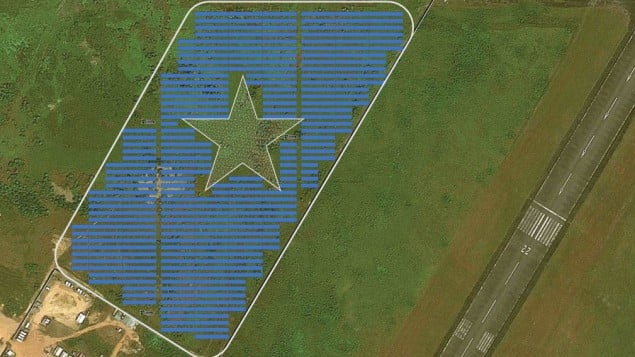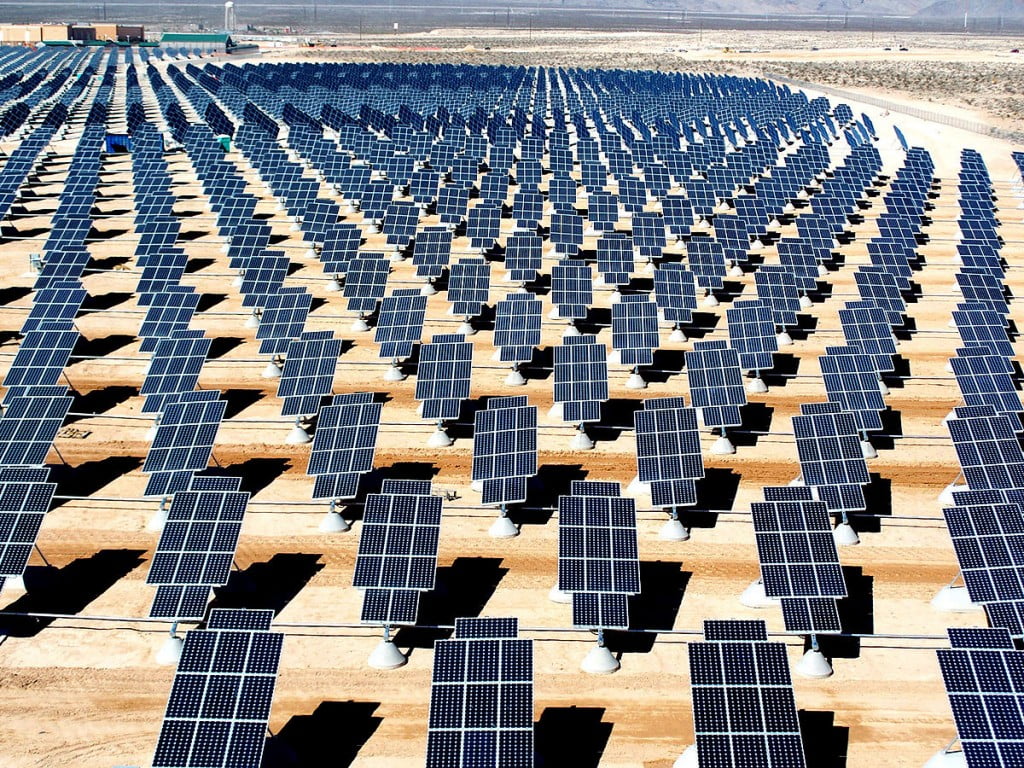This article was first published by The Times of Israel and was re-posted with permission.
An Israeli company will oversee $1 billion worth of solar field projects in Africa, harnessing the power of the sun, even as Israel itself struggles to bring its own plans for large solar fields online.
The massive deal to install the solar panels is part of an agreement that came out of Prime Minister Benjamin Netanyahu’s trip to Liberia to attend the Economic Community of West African States on Sunday.
SEE ALSO: Israelis Fight Hunger In Ethiopia By Helping Farmers Quintuple Crop Yields
Jerusalem-based Energiya Global’s deal will start with a $20 million solar field next to Liberia’s main airport producing 10 megawatts of power, and eventually expand to other ECOWAS countries, though further fields are still in the preliminary planning stages.

A mockup of the proposed Energiya Global 10 megawatt solar field near Roberts International Airport in Monrovia, Liberia. The field includes a star in honor of the Liberian flag. Courtesy of Energiya Global
Energiya Global CEO Yossi Abramowitz, who was in Liberia with Netanyahu and was part of Israel’s negotiating team for the COP21 Paris Climate Accords, said Israel’s legacy of bureaucracy and its struggling infrastructure mean that the deals Energiya Global is inking with African countries will put those countries ahead of Israel in terms of percentage of renewable energy consumption.
A mockup of the proposed Energiya Global 10 megawatt solar field near Roberts International Airport in Monrovia, Liberia. The field includes a star in honor of the Liberian flag. (courtesy Energiya Global)
Gigawatt Global, another company overseen by Abramowitz, is exploring solar fields in 10 African countries. In Rwanda, the 7.8-megawatt solar field it opened in 2015 now produces approximately 5% of the country’s electricity.
“In Africa, they deeply feel the effects of climate change because of increasing desertification,” said Abramowitz. “They are looking to Israel as a world leader to hold back desertification, and a lot of conflicts in the region are due to scarce water and food conflicts.”
He noted that the joint communique from ECOWAS and Netanyahu identified the top area for cooperation as agriculture, but the second area for cooperation was climate change and climate mitigation.
To read the full article, click here.
Related posts

Resilient And Nutritious New Plant-Based Milk Aims To Make A Splash

Chocolate From Cultivated Cocoa Comes Without Environmental Toll

Plastic Fantastic: Startup Takes PVC Back To Its Crude Oil Roots




Facebook comments